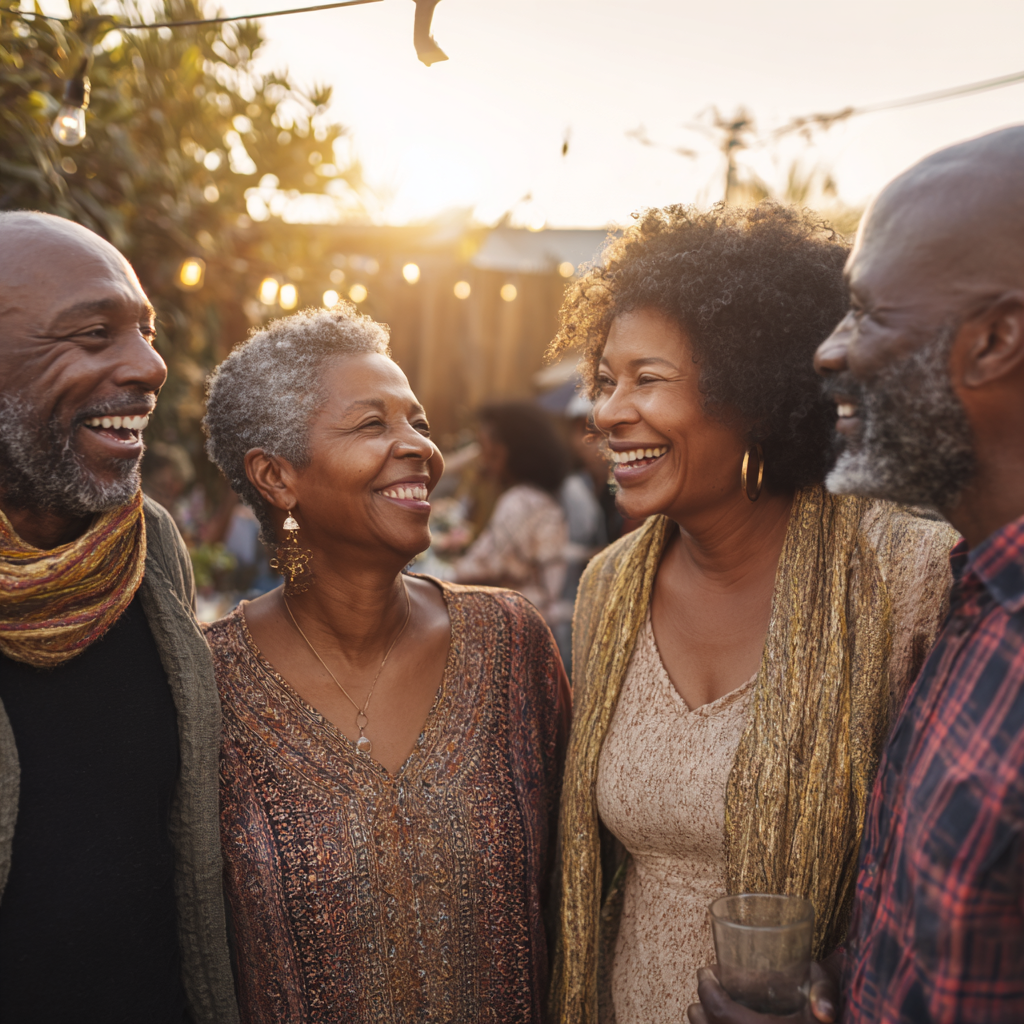Mental Wellness in Community Relationships
Living in community is one of our greatest strengths in New Orleans. We take care of each other, we show up for each other, and we understand that your success is my success. But let’s keep it real—sometimes that same closeness that sustains us can also drain us. Learning how to maintain your mental wellness while staying connected to your community is an art form, and it’s something many of us are still figuring out.
The Beautiful Burden of Community Care
In our culture, caring for others isn’t optional—it’s expected. You help your neighbor when they’re struggling. You take in family members who need a place to stay. And you show up for funerals, celebrations, and everything in between. This is beautiful, and it’s part of what makes our community strong.
But sometimes the expectation to always be available, always be strong, always be the one others can depend on becomes overwhelming. You might find yourself saying yes when you want to say no, giving money you don’t really have, or listening to the same problems over and over without seeing any change.
The challenge is figuring out how to maintain your caring nature without losing yourself in the process.
Understanding Healthy Boundaries
Boundaries aren’t walls—they’re gates. They’re not about shutting people out; they’re about controlling what comes in and when. In community-oriented cultures like ours, boundaries can feel selfish or foreign. We might worry that setting boundaries means we don’t care or that we’re acting “too good” for our people.
But here’s the truth: boundaries are actually what allow us to show up sustainably for the people we love. When you don’t have boundaries, you end up giving from an empty tank, and that doesn’t help anybody.
Healthy boundaries might look like:
- Saying “I can’t help with that right now, but I can help with this instead”
- Setting specific times when you’re available for phone calls about drama
- Choosing which family gatherings you attend based on your energy level
- Being honest about your financial limitations when people ask for money
The Guilt Factor
Let’s talk about the guilt, because it’s real. When you start setting boundaries, people might not understand. They might say you’ve changed, that you think you’re better than them, or that you don’t care about family anymore. That guilt can make you want to go back to old patterns.
Remember that guilt doesn’t mean you’re doing something wrong. Sometimes guilt just means you’re changing patterns that other people have gotten comfortable with. Your job isn’t to manage other people’s comfort with your growth—your job is to take care of your mental health so you can show up authentically in your relationships.
Dealing with Energy Vampires
Every community has them—people who seem to suck all the energy out of a room. They’re always in crisis, always need something, always have drama that somehow becomes your responsibility to solve. Often these are people we love, which makes it harder to protect ourselves from their chaos.
You can love someone and still protect your energy from them. This might mean:
- Limiting how much time you spend listening to their problems
- Refusing to get involved in their conflicts with other people
- Not lending money that you can’t afford to lose
- Setting a timer for phone calls so they don’t go on for hours
Remember, you’re not responsible for fixing other people’s lives. You can support, encourage, and love, but you can’t and shouldn’t try to save people who aren’t ready to save themselves.
The Pressure to Be Strong
In our community, there’s often pressure to be the “strong Black woman” or the “man of the house” who never shows weakness. This pressure can make it hard to admit when you’re struggling, when you need help, or when you can’t take on one more thing.
Your strength doesn’t come from never needing support—it comes from knowing when to ask for help and how to take care of yourself. Real strength is being able to say “I’m going through something right now and I need to focus on my own healing.”
Creating Your Inner Circle
Not everyone deserves access to every part of your life. It’s okay to have different levels of relationships with different people. Your inner circle should be people who:
- Support your growth and healing
- Respect your boundaries
- Can hold space for your struggles without trying to fix you
- Celebrate your successes without jealousy
- Contribute to your peace rather than disturbing it
These are the people you turn to when you’re really struggling, the ones you celebrate victories with, the ones who earn your vulnerability through consistency and care.
When Family Relationships Are Complicated
Family can be the most challenging when it comes to boundaries. There might be family members who hurt you, drain you, or consistently disrespect your boundaries. The pressure to maintain these relationships “because they’re family” can be intense.
But blood relation doesn’t give anyone the right to damage your mental health. You can love family members from a distance. You can maintain minimal contact for your own protection. Plus you can choose to skip family events that consistently leave you feeling bad about yourself.
Creating a chosen family of people who truly support your wellbeing doesn’t mean you don’t value blood family—it means you value yourself enough to surround yourself with love and support.
Building Community Connections That Heal
The goal isn’t to isolate yourself—it’s to build relationships that actually nourish you. Seek out connections with people who:
- Share your values and goals
- Are also committed to their own growth and healing
- Can engage in honest, respectful communication
- Support your dreams and encourage your boundaries
These might be people from your church, your workplace, community organizations, or support groups. Sometimes the best community connections are with people who understand your journey because they’re on a similar path.

Modeling Healthy Relationships
When you start setting boundaries and prioritizing your mental wellness, you give other people permission to do the same. The young people in your life are watching how you handle relationships, how you care for yourself, and how you balance community responsibility with personal wellbeing.
By modeling healthy boundaries, you’re teaching them that they can care for others without sacrificing themselves. You’re showing them that their mental health matters, that their peace is valuable, and that real love includes respect for boundaries.
Related: Clearing Mind Clutter
The Ongoing Practice
Building healthy community relationships while maintaining your mental wellness is an ongoing practice, not a one-time decision. Some days you’ll nail it. Other days you’ll slip back into old patterns. That’s normal and human.
The key is to keep coming back to your commitment to yourself. Keep adjusting your boundaries as you learn and grow. Keep surrounding yourself with people who support your healing. Most importantly, keep remembering that taking care of yourself isn’t selfish—it’s necessary.
Community is beautiful, but it should add to your life, not subtract from it. You deserve relationships that support your peace, celebrate your growth, and honor your boundaries. When you insist on this for yourself, you make it easier for everyone else to do the same.

